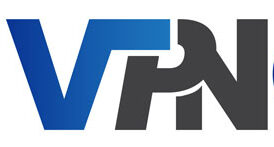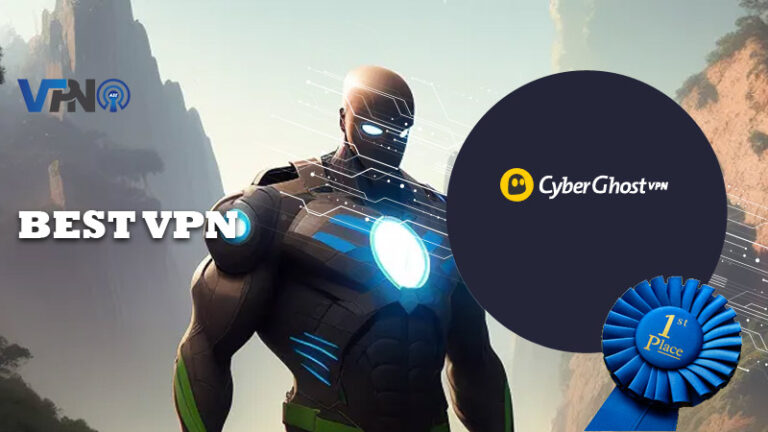How Do I Stay Safe on Hotel Wi-Fi? (+video)
To stay safe on hotel Wi-Fi, you must be aware of rogue hotspots, which are intentionally designed to confuse travelers. In order to avoid falling for them, try to distinguish the real WiFi from the fake ones by asking hotel staff to assist you. To make sure you’re safe while connected to hotel WiFi, use a good firewall to protect your computer’s gateway. Here are some tips:

2. PIA - Ton of servers world wide, but especially great in United States.***

3. NordVPN - The bigger the better! A great choice everywhere!***

4. ExpressVPN - Trusted by millions in over 180 countries!***

5. SurfShark - Amazing deal right now!***

6. PrivadoVPN - Exclusive deal - Cheapest 1 year deal online - ONLY through this link***

*** Offers money-back guarantee. So try them risk free!
VPN
A VPN is a good security measure to keep your data safe while connecting to any unsecured public network, including hotel Wi-Fi. VPNs encrypt your online traffic and mask your IP address from your ISP, so no one can see what you’re doing online. Then, you can browse the web without worrying about your personal information being leaked to a third party. A VPN can protect you from unauthorized access to your online activity, whether it’s shopping, banking, or even watching your favorite television shows.
While using a VPN will protect most of your online activities, it is still important to employ additional data security measures. Enabling DNS over HTTPS (DoH) on your browser and operating system will also provide an additional layer of protection. Many browsers now support DoH and you can enable it at the system level in Windows 10.
Hackers may also try to access your personal information by hijacking a hotel Wi-Fi network. This can happen because hotel guests have a personal network setup on their devices, and they might not know how to configure security settings on their networks. Or, they may want to spy on other people’s online activities. In this situation, a VPN is essential to stay safe on hotel Wi-Fi. When connecting to a public Wi-Fi network, always use a VPN to protect yourself.
When using hotel Wi-Fi, it is best to use a VPN, which protects your personal data. Even though it is often convenient, it is not 100% safe. You can still use it to browse for restaurants and tourist attractions, but you should not log into sensitive online accounts. This is because hotel Wi-Fi is not secure. This makes it easier for hackers to steal your personal information. If you are concerned about the security of hotel Wi-Fi, download a VPN today!
HTTPS
Using a VPN is one of the best ways to ensure your online safety, especially when connecting to public networks like hotel Wi-Fi. A VPN sends your online traffic through a secure tunnel, preventing anyone from eavesdropping on your conversation. A VPN is essential if you are using public networks like hotel Wi-Fi, especially if you don’t trust the network’s security. VPNs are also useful for protecting your data in general, and can help you avoid being victimized by rogue hotspots.
When using hotel Wi-Fi, make sure the password is changed regularly. Hackers can use simple methods to get access to your data, like changing the password on a placard at the reception desk. It is important to remember to always use HTTPS to ensure the security of your data. The hotel’s administrator can read this information and try to impersonate you. Once they know your password, it’s too late.
When connecting to public Wi-Fi, always use HTTPS. HTTPS is more secure and prevents hackers from intercepting your internet traffic. If an attacker steals your password or impersonates you, he can use it to access your personal and financial information. Using public Wi-Fi without HTTPS also gives your data to the company providing the network. HTTPS-encrypted networks may scan your traffic for malicious programs and require you to install a digital certificate.
When connecting to a public WiFi, make sure to download HTTPS-secured software. Various hacker groups have used a hotel Wi-Fi network to steal personal information from travelers. This is why it is important to download private, secure browser extensions, applications, and services before connecting to any hotel Wi-Fi. HTTPS Everywhere is a free browser extension that pushes websites to use secure HTTPS connections.
Encryption
While connecting to free hotel Wi-Fi, you should be aware of the risks. Without proper encryption, your information could be accessed by anyone with knowledge of the password. Depending on the nature of your online activity, this could mean everything from personal information to money. If you have sensitive information, like credit card numbers or social security numbers, it can be stolen or misused. The best way to protect your personal information when connecting to public Wi-Fi is to use a VPN.
Using a VPN can also protect your sensitive information from hackers. Hotel WiFi may not be encrypted, so you must use a VPN to protect your data. In addition, your browser may ask for additional information, such as a password, when it’s not encrypted. A VPN can prevent this from happening, making it the safest way to access the internet while traveling. Once you’ve set up a VPN, you can safely browse the internet without worrying about your sensitive information.
While hotel WiFi networks are generally secure, you should not rely on them as your primary source of online safety. Some networks monitor their customers’ activities, and may even record your IP address and login details. Thus, using hotel Wi-Fi can compromise your privacy and anonymity. Thankfully, there are several ways to stay safe while using hotel WiFi. In addition to setting up your own VPN, you can also use a third-party service.
Once you have installed a VPN, you can use it on any network, including hotel WiFi. A VPN will protect your personal information by sending it through an encrypted tunnel that prevents eavesdroppers from accessing it. You can also use a VPN when you are in a public area, such as in an airport or train station. VPNs are simple encryption tools that can protect your online activity.
Avoiding mobile apps
When traveling, it is vital to protect your mobile device and sensitive data. The Internet is a vastly unsecured medium and unsecured hotel Wi-Fi is especially vulnerable to malicious third parties, also known as hackers. Hackers are able to capture personal data, including banking and credit card details, when using unprotected networks. By following these tips, you can ensure the safety of your mobile device and data while traveling.
The first thing you need to do is check which applications you have installed on your device. Then, disable any applications that need automatic updates or refreshing. Most apps update their information without thinking about it and end up using up your cellular data. To prevent this problem, you can restrict which apps can access cellular data. In iOS, you can choose which apps can access cellular data. It is therefore best to turn off any apps that require cellular data.
Cyber criminals have become increasingly sophisticated. In addition to targeting hotel Wi-Fi, they have also been experimenting with drones. The Snoopy drone, for instance, targets large numbers of people at the same time. The inventors of these drones made these devices to demonstrate how easy it is to steal data by imitating WiFi. Avoiding mobile apps on hotel Wi-Fi is critical if you want to protect yourself and your data while traveling.
Another tip is to use a VPN while using hotel Wi-Fi. These networks are known to track your online activities, so if you’re not sure whether the network is secure or not, use a VPN. Remember that hotel Wi-Fi has no privacy controls and may be snooped upon by cyber criminals. Using a VPN is an excellent way to protect yourself from these risks, but you can’t completely avoid them.
Avoiding hackers
While hotel Wi-Fi networks are protected against hacking, the threat still exists. Hackers can exploit the network by infiltrating the Wi-Fi signals of “internet of things” devices, such as smart lights, blinds, and tablets. The following are some ways to avoid hacking on hotel Wi-Fi:
Hackers may intercept your online activity, such as your credit card details. Public Wi-Fi networks can be unprotected, and the risk of a cyberattack is very high. Avoid visiting sensitive websites, sending important emails, and entering your login credentials on unsecured public Wi-Fi. Instead, make use of the secure networks in your hotel or at a nearby coffee shop. Avoid providing personal information to strangers – they might be trying to steal your identity.
One of the most common ways to avoid hackers on hotel Wi-Fi is to be aware of the latest hacking threats. The DarkHotel group, which has been targeting business travelers for the past decade, use unsecured hotel Wi-Fi networks to distribute malicious software. These hackers distribute the malware to unsuspecting victims through phishing emails. They target travelers in order to collect their credit card numbers and bank account details.
VPN Comparison 2024
| Company | 1 Month | 6 Months | 1 Year | 2 Year | 3 Year | - |
|---|---|---|---|---|---|---|
| CyberGhost | $12,99 | $6,99 | - | $2,19 | - | Visit Website |
| NordVPN | $11,99 | - | $4,99 | $3,69 | - | Visit Website |
| PIA | $11,99 | - | $3,3 | 2024 Deal right now: $2,03 (Doesn't get cheaper!) | $2,03 | Visit Website |
| ExpressVPN | $12,95 | $9,99 | $8,32 | - | - | Visit Website |
| SurfShark | $12,95 | - | $3,99 | $2,49 | - | Visit Website |
| - | - | |||||
| PrivadoVPN | $10,99 | - | $2,50 | $3,99 | - | Visit Website |
It is important to remember that hotel WiFi lacks adequate security controls and privacy. This makes it an ideal target for hackers. However, you should not be paranoid about your online safety. There are several precautions you can take to protect your connection. Don’t use hotel Wi-Fi for financial transactions or sensitive data. And never trust unsecured hotel Wi-Fi. It may be difficult, but it is not impossible.


